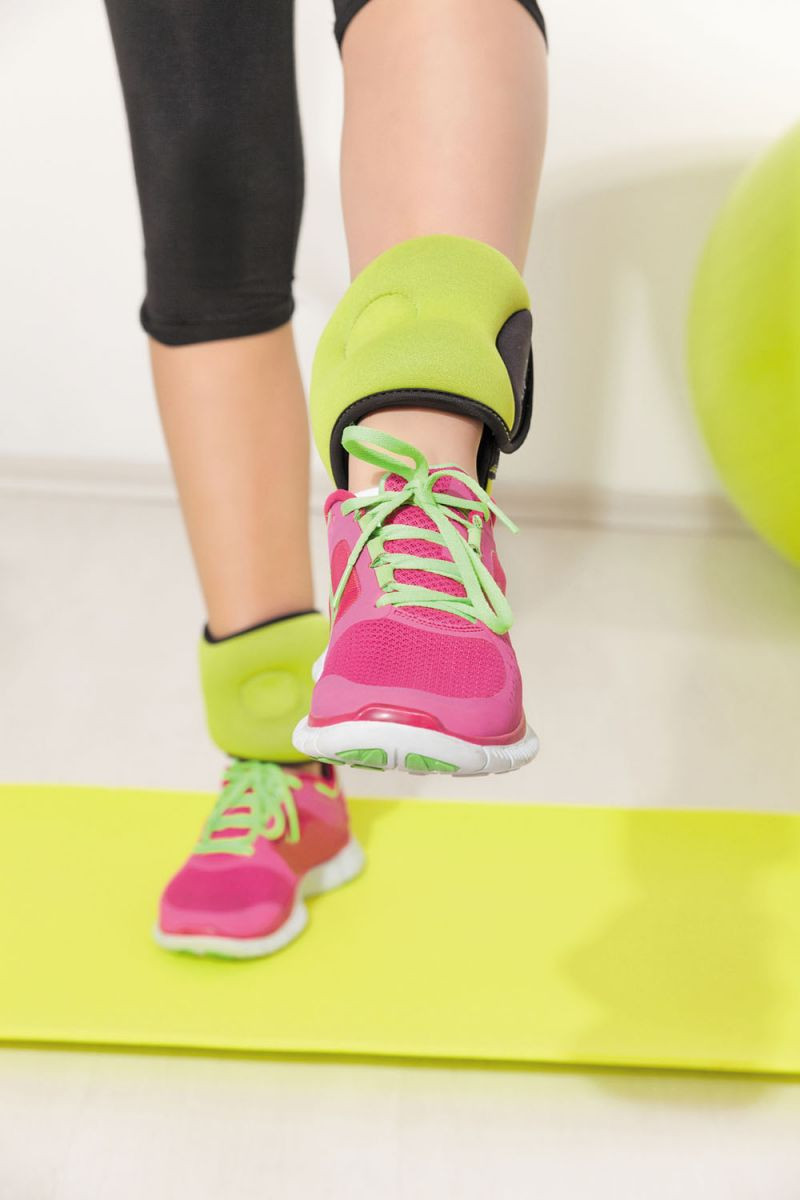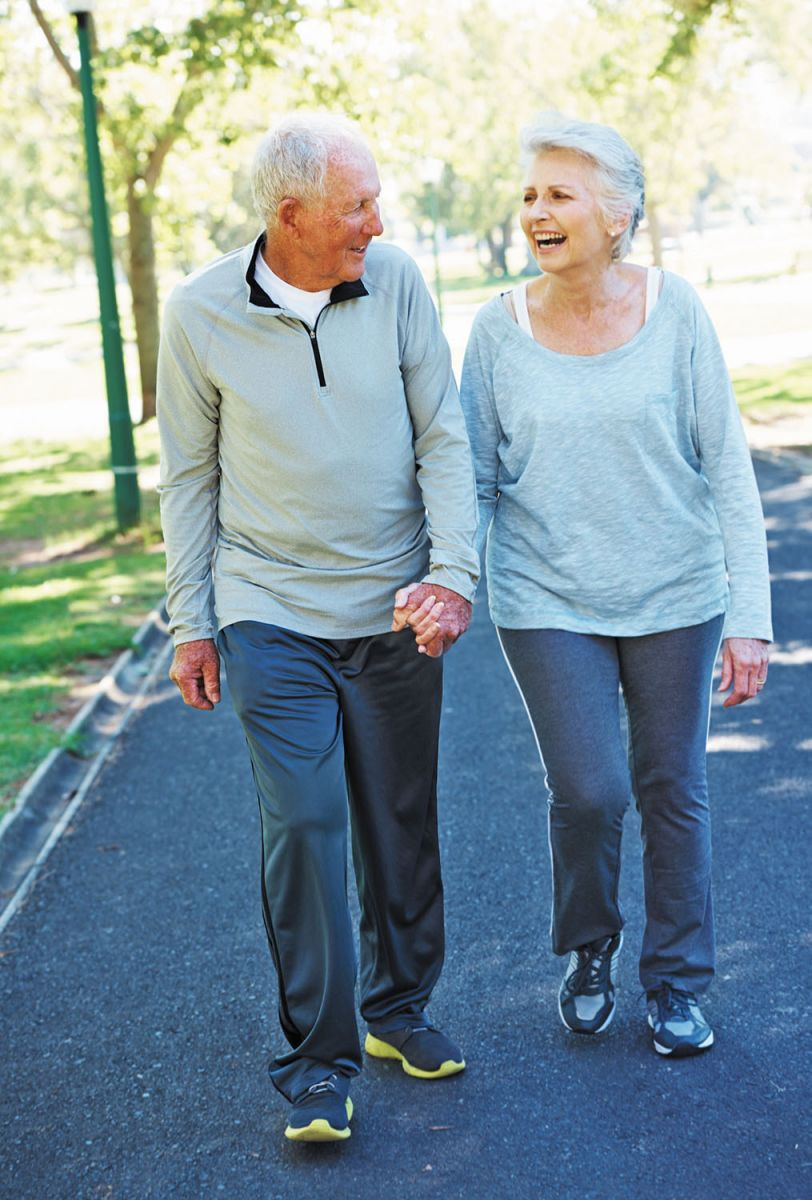
How — and why — to fit more fiber and fermented food into your meals

UTI in older women: Why postmenopausal women are susceptible to urinary tract infection, and what to do about it

Can a routine vaccine prevent dementia?

Some adults may need a measles booster shot. Who should get one and why?

Less butter, more plant oils, longer life?

Healthier planet, healthier people

Counting steps is good — is combining steps and heart rate better?

Appendix pain: Could it be appendicitis?

Can saw palmetto treat an enlarged prostate?

How does Ozempic work? Understanding GLP-1s for diabetes, weight loss, and beyond
Exercise & Fitness Archive
Articles
The many ways exercise helps your heart
A single exercise session may provide immediate and long-lasting protection.
Why is exercise so good for your health? Let us count the ways. One obvious answer is that exercise burns calories, which can help you maintain or reach a healthy weight. Regular exercise also improves factors linked to cardiovascular health, resulting in lower blood pressure, healthier cholesterol levels, and better blood sugar regulation.
And that's not all: Exercise also promotes positive physiological changes, such as encouraging the heart's arteries to dilate more readily. It also helps your sympathetic nervous system (which controls your heart rate and blood pressure) to be less reactive. But these changes may take weeks, months, or even years to reach their full effect.
Wearable weights: How they can help or hurt
They're great as a substitute for a dumbbell, but a risky choice for some exercises.
When you want to add strength training to your routine, wearable weights seem like a handy shortcut. Just slip them on and do your regular workout. But it's not that simple. "They're great for specific exercises, but they have some risks," says Terry Downey, a physical therapist at Harvard-affiliated Spaulding Rehabilitation Network.
Ankle weights
You may see people walking around with weights around their ankles. The weights are typically built into a wide neoprene strap that wraps around the ankle and attaches with Velcro.
Belly fat may pose more danger for women than for men
Whittle your waist for better health.
You've probably heard that extra pounds around your middle are bad for your heart. But a new study has found that excess weight in your belly — a body shape doctors refer to as central adiposity — may be even worse for women's heart health than men's.
The study, in the March 6 issue of the Journal of the American Heart Association, involved about 500,000 people (55% of them women), ages 40 to 69, in the United Kingdom. The researchers took body measurements of the participants and then kept track of who had heart attacks over the next seven years. During that period, the women who carried more weight around their middles (measured by waist circumference, waist-to-hip ratio, or waist-to-height ratio) had a 10% to 20% greater risk of heart attack than women who were just heavier over all (measured by body mass index, or BMI, a calculation of weight in relation to height).
Take that, muscle cramps!
Here are the best ways to stop painful cramps — and prevent them from returning.
Image: © ChesiireCat/Getty Images
A muscle cramp always feels like a surprise. The involuntary contraction strikes without warning, whether it's a charley horse in the middle of night or a back spasm as you reach for an everyday object. But don't let that cramp throw you for a loop. "When it suddenly strikes, don't exercise or tighten the muscle. Just gently stretch it to your tolerance. That helps to relax the muscle and relieve the uncontrolled contraction," says Madhuri Kale, a physical therapist at Harvard-affiliated Brigham and Women's Hospital.
What causes cramps?
Exercising without properly warming up the muscles can lead to cramps. Cramps also occur when a muscle is not able to relax properly (such as from a deficiency of magnesium or potassium in your diet) or when it becomes irritated by a buildup of lactic acid (which can happen if you don't rest your muscle after it has exercised a lot). Dehydration can worsen both of these problems. Kale says older adults often don't drink enough water at night because they want to avoid having to go the bathroom, and they end up dehydrated.
A strong core: The simple, flexible, and portable workout
Strengthening your core muscles doesn't have to be overwhelming. You can do these simple exercises anywhere and adapt them as you gain fitness.
The office workout
The following routine is a great way to ease into core work. You can do these four exercises at work, without your colleagues being any the wiser. You can do these exercises at home, too, thanks to simple variations. The front plank, for example, can be done while either leaning on your desk or using the kitchen counter to support your weight.
Exercise is an all-natural treatment to fight depression
Exercise is as effective as antidepressants in some cases.
One in 10 adults in the United States struggles with depression, and antidepressant medications are a common way to treat the condition. However, pills aren't the only solution. Research shows that exercise is also an effective treatment. "For some people it works as well as antidepressants, although exercise alone isn't enough for someone with severe depression," says Dr. Michael Craig Miller, assistant professor of psychiatry at Harvard Medical School.
The exercise effect
Exercising starts a biological cascade of events that results in many health benefits, such as protecting against heart disease and diabetes, improving sleep, and lowering blood pressure. High-intensity exercise releases the body's feel-good chemicals called endorphins, resulting in the "runner's high" that joggers report. But for most of us, the real value is in low-intensity exercise sustained over time. That kind of activity spurs the release of proteins called neurotrophic or growth factors, which cause nerve cells to grow and make new connections. The improvement in brain function makes you feel better. "In people who are depressed, neuroscientists have noticed that the hippocampus in the brain—the region that helps regulate mood—is smaller. Exercise supports nerve cell growth in the hippocampus, improving nerve cell connections, which helps relieve depression," explains Dr. Miller.
3 easy ways to get active — right now
Thinking about exercising is great, but just jumping in is often the best way to blast past mental or emotional barriers. You don’t need a complex workout program; start small and focus on making activity a daily habit. Here are easy ways to add activity to your day.
Recovering from heart surgery
Here's what to expect once you're home from the hospital.
Every day, thousands of people in the United States undergo open-heart surgery. This major operation leaves them with a long chest incision — and a lengthy recovery. The time it takes to fully heal will depend on the person's age and overall health and the complexity of the operation.
The most common is coronary artery bypass grafting, which uses a blood vessel taken from another part of the body to bypass a blocked heart artery. Open-heart surgery is also done to repair or replace a faulty heart valve or to repair damaged or abnormal areas of the heart.
12 minutes of exercise might lower risks for heart disease and diabetes
News briefs
Ever wonder how much exercise time it takes to start reducing your risk for heart disease and diabetes? It could be as little as 12 minutes, according to a Harvard study published Nov. 17, 2020, in Circulation. Scientists analyzed blood from more than 400 middle-aged men and women before and just after they'd pedaled for 12 minutes on cycling machines, reaching a vigorous rate. In particular, scientists measured levels of almost 600 natural body chemicals (metabolites). Exercise produced significant changes in most metabolites. For example, the level of one metabolite linked to heart disease and diabetes fell by 29%. Another metabolite tied to diabetes risk and liver disease fell by 18%. That suggests, but doesn't prove, that 12 minutes of daily exercise (that includes vigorous activity) might reduce the risk of heart disease and diabetes. What if you're more of a moderate-intensity exerciser? "We don't know yet if moderate-intensity exercise would have a similar effect on metabolites. But study participants started off with very light exercise, and each minute the intensity increased," says Dr. Gregory Lewis, the study's senior author and a cardiologist at Harvard-affiliated Massachusetts General Hospital.
Image: © artvea/Getty Images
Can taking aspirin regularly help prevent breast cancer?
Experts say there's little evidence that low-dose aspirin therapy brings benefits, and there are some risks.
In recent years, there's been a lot of talk about the potential benefits, and risks, of a regular regimen of low-dose aspirin. While much of the discussion has centered on whether taking low-dose aspirin can head off cardiovascular disease, some of the focus has also been on breast cancer. Can regular doses of this over-the-counter pain reliever reduce your risk of this common cancer?
For a while there were hints that the evidence was leaning that way. Back in 2017, this area of research, while still inconclusive, was somewhat promising. For example, a 2017 study published in Breast Cancer Research found that among some 57,000 women, those who reported taking low-dose aspirin (81 mg) at least three times a week had a 16% lower risk of breast cancer over all and a 20% lower risk of a specific type of hormonally driven breast cancer.

How — and why — to fit more fiber and fermented food into your meals

UTI in older women: Why postmenopausal women are susceptible to urinary tract infection, and what to do about it

Can a routine vaccine prevent dementia?

Some adults may need a measles booster shot. Who should get one and why?

Less butter, more plant oils, longer life?

Healthier planet, healthier people

Counting steps is good — is combining steps and heart rate better?

Appendix pain: Could it be appendicitis?

Can saw palmetto treat an enlarged prostate?

How does Ozempic work? Understanding GLP-1s for diabetes, weight loss, and beyond
Free Healthbeat Signup
Get the latest in health news delivered to your inbox!
Sign Up











